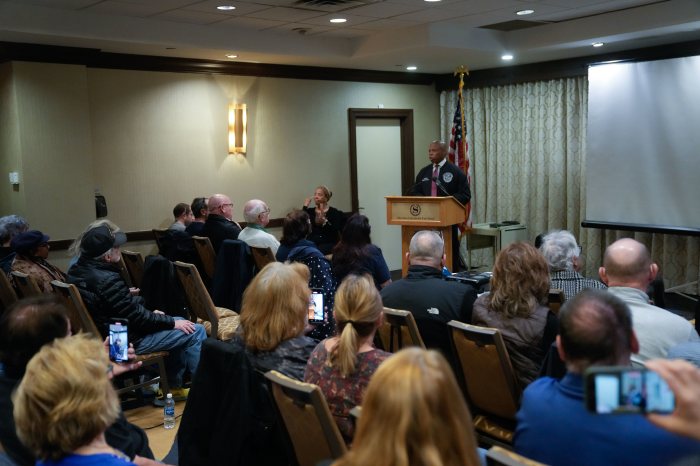Abdullah Munshi offered a bizarre defense for driving drunk on the morning of July 10 when he struck and killed Frank Avino, a 63-year-old electrician from College Point.
Last week, Munshi, 26, pleaded guilty to vehicular manslaughter. He admitted he had been drinking between midnight and 3 a.m., but said he was driving that morning because his friends were too drunk to drive.
Because of his reckless act, he will spend at least 28 months in prison.
When he gets out of prison, he will be required to install an ignition interlock device on any vehicle he owns or drives for a period of five years. More important, he will live forever with guilt. His sentence is small consolation for the Avino family.
We’d like to think this tragedy serves as a warning to the young people of Queens who are in the habit of drinking and driving, but it probably won’t.
By the time he got behind the wheel, Munshi probably didn’t realize how impaired he was. He knew his friends were too drunk to drive, but he didn’t realize that he, too, shouldn’t have been driving.
“The sentence imposed today — which is the maximum allowed under the law — is more than justified,” said District Attorney Richard Brown. “The defendant’s decision to drive while under the influence of alcohol and to speed through a construction site tragically caused the death of an innocent man who was simply doing his job.”
Unlike many of the criminals that Brown prosecutes, those convicted of vehicular manslaughter never intended to hurt anyone.
In reality, Munshi’s crime began when he went out drinking with his friends without a responsible plan for getting home.
Unable to make bail, Munshi has been in jail since he was arrested last July. We hope that when he completes his sentence he will be able to get his life back on track. And we hope the friends who were “too drunk to drive” share the remorse he feels.
Too often we have reported tragedies caused by drivers who were drunk, high or distracted by their cellphones. Spending 2 1/3 years in prison is a long time, but it doesn’t appear to be enough to get the message out to other young drivers who are certain it couldn’t happen to them.



































